- CN
Actively prepared to participate in the Human Genome Project and closely followed and tracked scientific research in global human genomics.
With the advancement of sequencing technology, BGI's BT + IT scaled output model took shape. On September 9, 1999, BGI was established.
The combination of big science and big data transformed into a large industry. In 2007, BGI went south to Shenzhen and completed a series of major scientific research projects, gradually moving from being a participant to being a leader.
In an unprecedented era of genetic industrialization, the development path of BGI moved from "scientific and technological cooperation" and "technical services" to "medical services", with a vision of using "genetics technology for the benefit of man

Yang Huanming, Yu Jun, Wang Jian and others proposed a set of forward-looking strategic ideas on China's participation in the Human Genome Project (HGP) in Zhangjiajie, Hunan. This gave birth to the development and future of Chinese genomics.

BGI was established for the Human Genome Project.
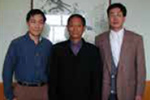
Yuan Longping, Zhu Lihuang and Wang Jian signed the Agreement on the Development of China's Super Hybrid Rice Genome Research. The rice genome project was launched.

The 1% project work framework of the Human Genome Project was completed.

A research paper on the framework of the Chinese rice (Japonica) genome work was published in Science as a cover story.

BGI revealed the whole genome sequence of four SARS virus strains for the first time in China. Then Chinese President Hu Jintao visited BGI and expressed his appreciation to the researchers.

BGI donated 300,000 SARS virus diagnostic kits to the National Atypical Pneumonia Command.

The silkworm genome research was published in Science. The research of chicken genome was published in Nature as a cover story.
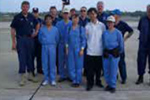
After the Indian Ocean tsunami, BGI Fangrui dispatched a DNA identification and rescue team to the disaster area in Thailand to help with the DNA identification of the victims for free., This caused a huge response around the world.
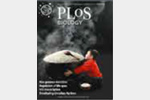
The “fine map” of the Rice Genome Project was completed.

The 10% of International Human Genome HapMap Project undertaken by a group of Chinese researchers led by BGI was published in Nature.
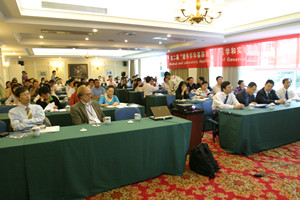
The first International Conference on Genomics (ICG) was held in Hangzhou.

Shenzhen BGI Research Institute (currently “BGI-Research”) was established.

BGI participated in the post-disaster reconstruction of the “5•12 Wenchuan Earthquake” to monitor possible health emergencies and infectious diseases.

BGI completed the sequencing of the giant panda genome.

The research result of the first Asian genome map ("Yanhuang Project") was published in Nature as a cover story.

The research result of human intestinal bacteria genome was published in Nature as a cover story.

At the beginning of 2008, BGI-Research, Sanger Institute and National Human Genome Research Institute launched the 1000 Genomes Project. The results were published in Nature as a cover story on October 28, 2010.

BGI deciphered the pathogen genome of the German lethal E. coli outbreak and published the research result online in the New England Journal of Medicine.
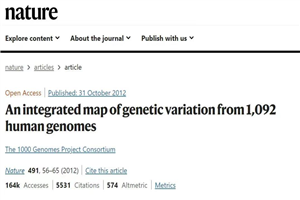
The international research consortium for the 1000 Genomes Project (a large-scale international scientific research cooperation project) published in Nature an integrated map of genetic variation of human genomes based on the analysis of DNA variation of 1,092 individuals. BGI, as one of the initiators of the project, undertook nearly a quarter of the project.

NIFTY, BGI’s NIPT test, became the first second-generation gene sequencing and testing product in the world approved and registered by the China Food and Drug Administration.

BGI cooperated with other institutions to successfully develop the Ebola virus nucleic acid detection reagent.

BGI teamed up with scientists from over 20 countries to complete the large-scale bird genome project, and 28 first-phase research results were published in several scientific journals including Science.

BGISEQ-500, the first proprietary desktop high-throughput sequencing system, was launched globally.

BGISEQ-50, a proprietary high-throughput desktop sequencing system, was launched globally.

The major achievements in the yeast genome synthesis project were published in Science as a cover story and special feature.

BGI Genomics Co., Ltd. (stock code: 300676) was listed on Shenzhen Stock Exchange.

During the 12th International Conference on Genomics (ICG-12), MGI launched two high-throughput sequencing systems, MGISEQ-2000 and MGISEQ-200.

BGI published the research result of the largest Chinese genomics big data in the world’s top academic journal Cell.

During the 13th International Conference on Genomics, MGI launched its proprietary ultra-high-throughput gene sequencer DNBSEQ-T7.

BGI launched the research result of the world’s largest genome set of human intestinal bacteria.
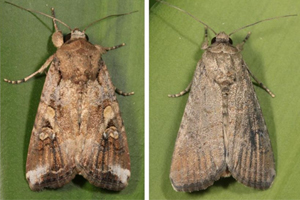
BGI cooperated with Yunnan Agricultural University other institutions to complete the world’s first high-quality chromosome-level genome of spodoptera frugiperda.

MGI launched its new proprietary one-stop sequencing solution, including a first brand new portable gene sequencing system DNBSEQ E series, and a modular “digital bio lab” DNBelab D series for use with the sequencing system.
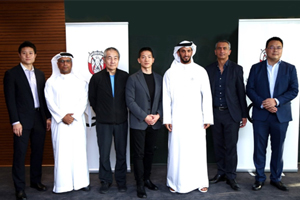
BGI Group participated in the comprehensive and large-scale genome project launched in Abu Dhabi, UAE.

BGI Genomics successfully developed the SARS-CoV-2 nucleic acid testing kits and donated over 130,000 kits in China.
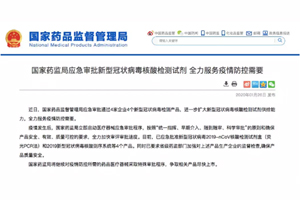
BGI Genomics SARS-CoV-2 testing kit and the MGI DNBSEQ-T7 sequencing system obtained the emergency approval from China National Medical Product Administration and became the first batch of COVID-19 testing products approved for the market.
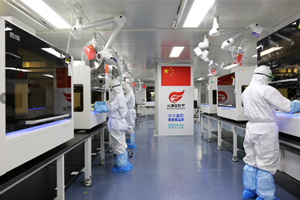
Since the beginning of operation in Wuhan, BGI Genomics has built “Huo-Yan” Laboratories in multiple Chinese cities including Shenzhen, Tianjin and Beijing to effectively assist local pandemic prevention and control efforts. Meanwhile, “Huo-Yan” Laboratories were built in countries including Serbia, Brunei and the Philippines to help build up their capabilities to fight against COVID-19.
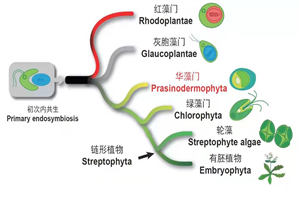
BGI-Research cooperated with the teams from Germany, Denmark and Belgium to discover a new phylum “prasinodermophyta”. This is the first discovery made by Chinese scientists in the category “phylum”.
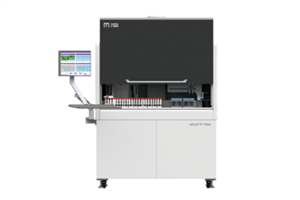
MGI’s automatic MGISTP-7000 aliquot processing system was certified as a Class-I medical device by the National Medical Products Administration (NMPA), which was founded on the basis of the former China Food and Drug Administration.
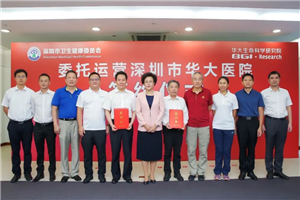
Shenzhen Municipal Health Commission entrusts BGI-Research to operate Shenzhen BGI Hospital, a major health project in Shenzhen, and positioned as a municipal public hospital.
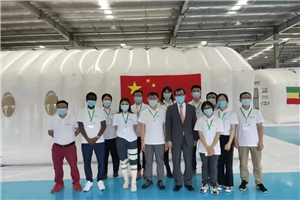
In Ethiopia, a COVID-19 testing kit production factory with an annual output of 10 million kits invested by BGI Genomics officially started operation, which not only fulfilled the gap of COVID-19 testing kits production, but also further boosted the COVID-19 testing capability in the country.

BGI-Research cooperated with Kunming Institute of Zoology and other units to publish two articles in Nature as cover articles, reporting the latest research results at the second stage (family level) of the Bird 10,000 Genomes Project (B10K)..
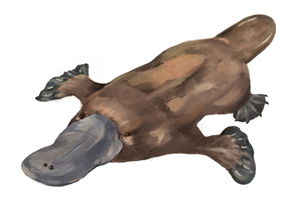
BGI-Research and other institutions published the research result of monotremata genomes, and studied the evolution process of monotremata multi-pair chromosomes and some mammalian traits through whole-genome analysis for the first time. Relevant results were published in Nature.
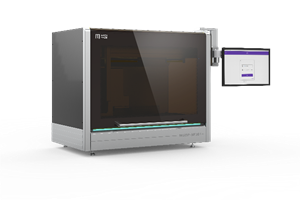
MGI launched MGISP-NE384, a high-throughput automated nucleic acid extractor with a daily throughput of over 10,000 samples per unit.

Two research papers which were led and participated by BGI-Research were published online in Cell, revealing the mystery of vertebrate evolution from aquatic form to terrestrial form from different perspective and evolution nodes.
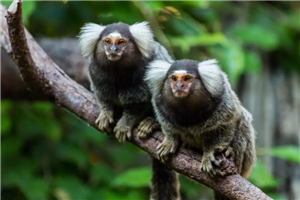
Using family genome sequencing data, BGI-Research independently assembled two sets of high-quality genomes of common marmosets, a research model for human diseases. Relevant results were published in Nature.
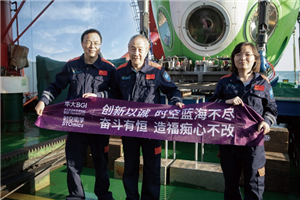
Wang Jian (Chairman of BGI Group), Xu Xun (Director of BGI-Research) and Liu Shanshan (Deputy General Manager of MGI Qingdao) dived into the abyss of the Mariana Trench with “Fen Dou Zhe” deep-sea manned submersible to collect precious deep ocean samples to help improve scientific research knowledge of deep-sea biodiversity and species origin.
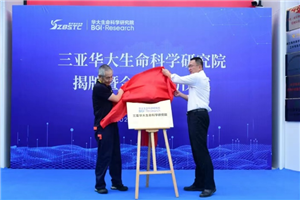
BGI-Research Sanya was unveiled, and collaborated with six units to create a global big data center of zoology and botany.

The 101st Project of BGI for Public Well-Being--Hunan Yuanling Health Project for Public Well-Being was launched.
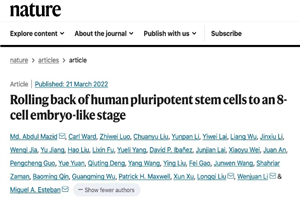
Chinese Academy of Sciences, BGI-Research and other institutions cultured the human totipotent stem cells in a state similar to 3-day old fertilized ovums through somatic cell induction and culture. These were the youngest human cells cultured in vitro in the world at that time. Relevant research results were published in Nature.
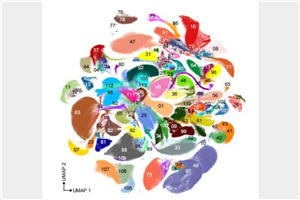
World’s first whole-body cell atlas of a non-human primate (macaque) led by BGI-Research and participated by multinational research teams was published in Nature.

BGI-Research cooperated with a number of institutions to publish the first batch of animal, insect and plant life spatio-temporal atlas in the world. This was featured in a special topic about the SpatioTemporal Omics Consortium (STOC) on the official website of Cell Press. The spatio-temporal atlas of mouse embryo development was published in Cell as a cover article.

At the 17th International Conference on Genomics in Reproductive Health (ICG17•RH), BGI Genomics announced that more than 10 million of BGI's non-invasive prenatal tests have been taken.

DNBSEQ-E25, a new generation of miniaturized gene sequencers from MGI, was launched.

The first spatio-temporal map of the regeneration of axolotl brain completed by BGI-Research and Guangdong Provincial People’s Hospital, Wuhan University and other institutions, was published in Science as cover story, which is also the first spatio-temporal map of brain regeneration in the world.

Shenzhen MGI Tech Co., Ltd. was listed on science and technology innovation board of Shanghai Stock Exchange, with the stock code “688114”. Thus, the A-share market welcomed the first stock for core tool of life science and technology and the leading enterprise in the field of domestic gene sequencing equipment.
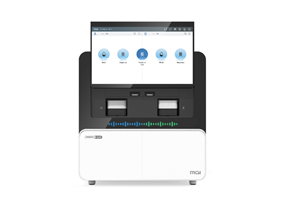
MGI launched DNBSEQ-G99, the latest small- and medium-throughput gene sequencer, and one of the fastest among the models of equivalent throughput in the world.
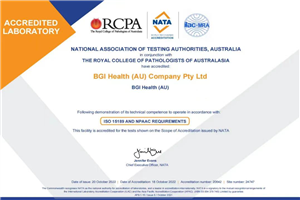
BGI Australia’s lab has achieved accreditation from the National Association of Testing Authorities (NATA) to perform clinical Whole Exome Sequencing in Australia